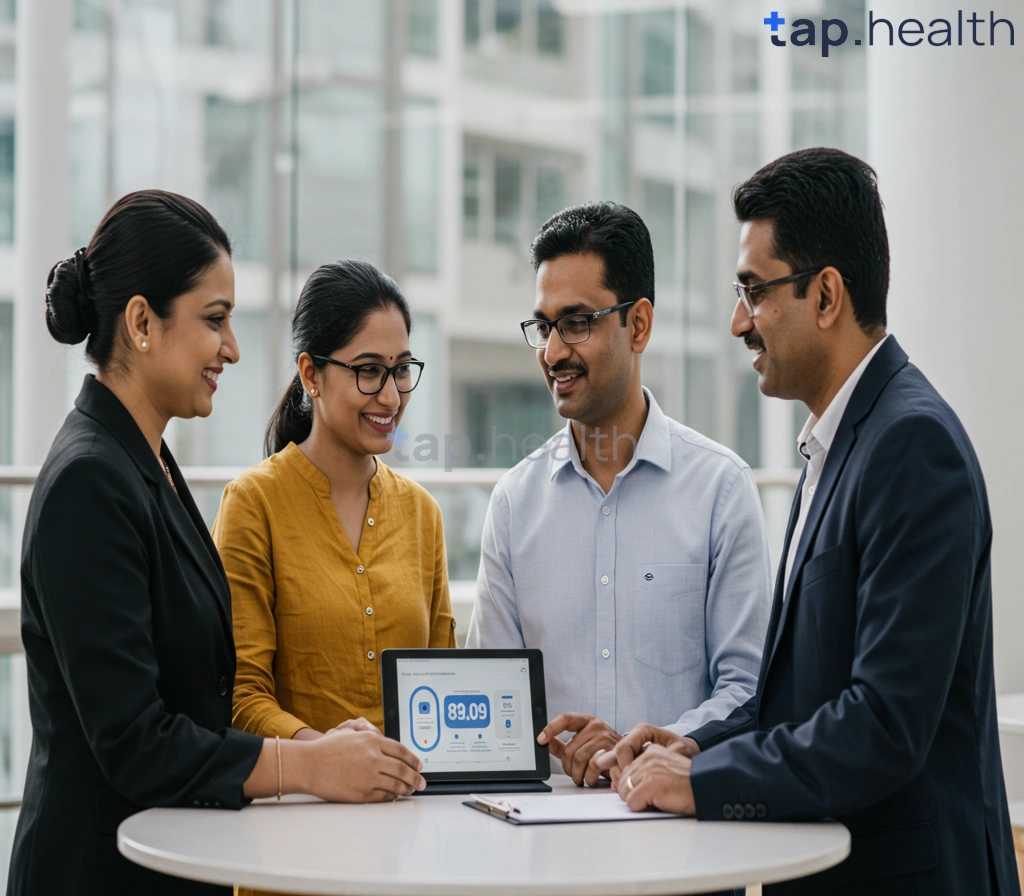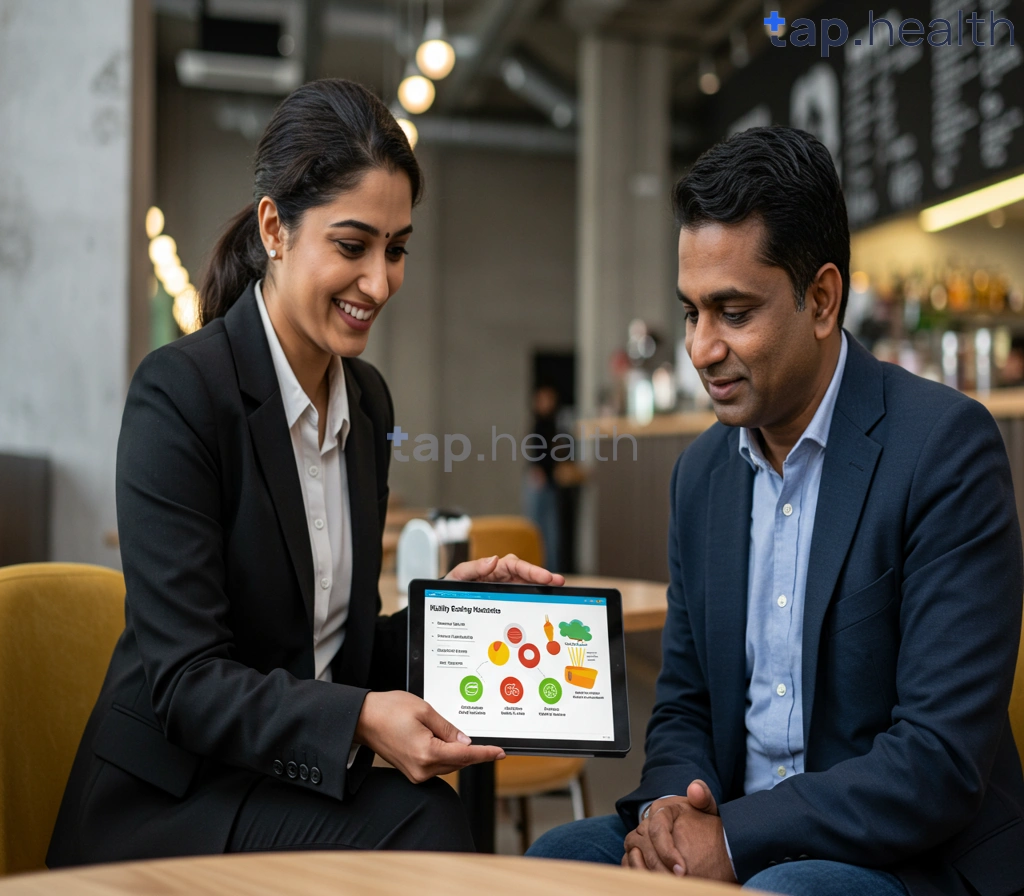Table of Contents
- Understanding Diabetes: Research-Based Insights
- Mastering Diabetes Management: Your Knowledge Guide
- Diabetes Education: Empowering Self-Care Through Research
- Top 5 Research Findings to Improve Your Diabetes Management
- Effective Strategies for Living Well with Diabetes
- Frequently Asked Questions
- References
Living with diabetes can feel like navigating a complex maze, but you don’t have to do it alone. This blog is all about Diabetes Education: Empowering You Through Research and Knowledge. We’ll cut through the confusing medical jargon and provide you with the clear, concise information you need to manage your condition effectively. Whether you’re newly diagnosed or a seasoned veteran, we’re here to support you on your journey to better health. Get ready to discover practical tips, insightful research updates, and empowering strategies to take control of your diabetes. Let’s embark on this learning adventure together!
Understanding Diabetes: Research-Based Insights
Diabetes, a global health concern, significantly impacts populations across the world, particularly in India and other tropical countries. A significant portion of those affected, 61% according to the International Diabetes Federation’s Diabetes Atlas (https://diabetesatlas.org/data/en/world/), are within the productive age group of 20-64 years. This highlights the urgent need for effective diabetes management and prevention strategies, especially within these younger demographics. Understanding the disease’s prevalence and impact within this age group is crucial for tailored interventions.
The Impact of Diabetes in India and Tropical Countries
The prevalence of diabetes is notably high in many Indian and tropical regions, often influenced by genetic predisposition, lifestyle factors, and limited access to healthcare. Factors like dietary habits, physical activity levels, and overall socioeconomic conditions contribute to this higher prevalence, especially among the 20-64 age group. The remaining 39% affected, aged 65+, (https://diabetesatlas.org/data/en/world/) also require focused attention, but addressing the needs of the younger population is critical for long-term health outcomes and economic productivity. This is especially important considering the challenges of Managing Diabetes as You Age: Challenges and Solutions.
Empowering Individuals Through Knowledge
Effective diabetes management starts with education and awareness. Understanding your risk factors, recognizing early symptoms, and adopting a healthy lifestyle are crucial steps. This includes making informed food choices, engaging in regular physical activity, and maintaining a healthy weight. Seeking regular check-ups and adhering to prescribed medication are equally vital. Access to reliable information and support networks is key to empowering individuals with diabetes to manage their condition effectively. Understanding the link between lifestyle and the disease is crucial, as highlighted in our blog on Understanding the Link Between Diabetes and Obesity.
Taking Control of Your Health
For individuals in India and other tropical countries, accessing reliable diabetes education resources tailored to their specific context is essential. Connecting with local healthcare professionals, attending diabetes education programs, and utilizing online resources can significantly improve self-management skills and quality of life. Taking proactive steps today can make a significant difference in preventing and managing diabetes for a healthier tomorrow.
Mastering Diabetes Management: Your Knowledge Guide
Diabetes is a growing global concern, affecting 536.6 million people aged 20-79 in 2021, a number projected to rise to 783.7 million by 2045. This alarming statistic highlights the urgent need for effective diabetes management, particularly in Indian and tropical countries where prevalence is often high due to factors such as lifestyle and genetic predispositions. Understanding your condition is the first step towards effective control.
Understanding Your Diabetes Journey
Managing diabetes in hot and humid climates presents unique challenges. Dehydration can significantly impact blood sugar levels, requiring careful hydration strategies. Traditional diets in many Indian and tropical regions often include high carbohydrate foods, necessitating careful meal planning and portion control to maintain stable glucose levels. Regular monitoring of blood sugar levels is crucial, especially during periods of intense heat or physical activity.
Practical Tips for Effective Management
Regular exercise is vital. Even short walks throughout the day can make a difference. A balanced diet rich in fruits, vegetables, and lean protein is key. Consider consulting a nutritionist familiar with local dietary customs to develop a personalized meal plan. Regular check-ups with your doctor are also crucial for monitoring your condition and adjusting medication as needed. Remember, seeking support from family, friends, or diabetes support groups can significantly improve your overall well-being. For more specific advice on managing your diet and exercise, check out our guide: 10 Proven Tips to Effectively Manage Diabetes | Simple Guide.
Empowering Your Diabetes Journey
Taking control of your diabetes requires knowledge, consistent effort, and the right support. In the specific context of India and tropical countries, adapting management strategies to account for climate and dietary habits is essential for successful long-term management. Seek out resources and support within your community and don’t hesitate to reach out to healthcare professionals for guidance and personalized advice. Your active participation is key to a healthier and more fulfilling life. We also recommend reading 10 Proven Tips for Effective Diabetes Management for practical, actionable steps you can take today.
Diabetes Education: Empowering Self-Care Through Research
Diabetes is a growing concern globally, impacting millions, including a significant number of youth. In the U.S., approximately 35 per 10,000 youths are diagnosed with diabetes, a statistic that underscores the urgent need for effective education and self-care strategies, particularly in resource-constrained regions like many Indian and tropical countries. This emphasizes the importance of accessible and culturally relevant diabetes education programs.
Understanding Your Risk and Managing Your Health
Effective diabetes management hinges on understanding your individual risk factors and adopting proactive self-care practices. This includes regular blood glucose monitoring, adhering to prescribed medication regimens, and maintaining a healthy lifestyle. For individuals in tropical climates, access to clean water and nutritious food may present additional challenges, emphasizing the crucial role of community support and healthcare initiatives. Early detection and intervention are key to preventing or delaying long-term complications.
Practical Steps for Improved Self-Care
Simple lifestyle modifications can significantly impact blood glucose control. This includes incorporating regular physical activity into your daily routine, even short walks can make a difference, and focusing on a balanced diet rich in fruits, vegetables, and whole grains. In many Indian and tropical countries, traditional diets often include elements beneficial for diabetes management, and incorporating these into a personalized plan can be very helpful. Seeking support from healthcare professionals and diabetes support groups is crucial for navigating the challenges of managing this condition. For more information on creating a Personalized Diabetes Control, consider exploring different approaches.
Empowering Communities Through Education
Diabetes education initiatives tailored to the specific needs and contexts of Indian and tropical countries are vital. These programs should prioritize culturally sensitive information dissemination, address the unique challenges faced by these populations, and provide easily accessible resources. By empowering individuals and communities with the knowledge and tools to effectively manage their diabetes, we can collectively work towards improving health outcomes and quality of life. Understanding how Diabetes Education Enhances Health Outcomes is crucial for successful interventions.
Top 5 Research Findings to Improve Your Diabetes Management
Diabetes is a global health crisis, claiming a staggering 6.7 million lives in 2021—that’s one death every five seconds (Source). In India and tropical countries, the prevalence is particularly concerning, often exacerbated by lifestyle factors and limited access to quality healthcare. Understanding the latest research is crucial for effective management.
1. The Power of Diet in Diabetes Management
Studies consistently highlight the importance of a balanced diet low in refined carbohydrates and saturated fats. For individuals in India and tropical countries, incorporating locally available fruits, vegetables, and whole grains can significantly improve glycemic control and overall health. Prioritizing traditional, plant-based meals is a powerful step. This is especially important considering the 5 Common Mistakes People Make in Managing Diabetes, many of which relate to diet.
2. Regular Physical Activity: A Cornerstone of Control
Research emphasizes the crucial role of regular physical activity in managing blood sugar levels. Even moderate activity, like daily brisk walks or yoga, can make a substantial difference. In warmer climates, choosing activities that are comfortable and sustainable is key. Consider early morning or evening exercises to avoid peak heat.
3. Importance of Monitoring and Early Detection
Regular blood glucose monitoring is paramount. Early detection of high or low blood sugar allows for timely intervention, preventing serious complications. Access to affordable and reliable testing supplies is crucial, especially in resource-constrained settings across India and tropical regions.
4. The Role of Stress Management
Studies reveal a strong link between stress and blood sugar levels. Incorporating stress-reducing techniques like mindfulness, meditation, or yoga can significantly improve diabetes management. Finding culturally relevant stress-reduction methods is important for long-term success.
5. The Benefits of Community Support
Research shows that social support networks significantly improve diabetes management outcomes. Connecting with others facing similar challenges, whether through support groups or online communities, can provide encouragement, practical advice, and a sense of belonging. Seek out local diabetes support groups in your area for invaluable peer support and guidance. Making even small 5 Easy Lifestyle Changes to Manage Type 2 Diabetes can have a significant impact, and support groups can help you stay motivated.
Effective Strategies for Living Well with Diabetes
Diabetes management in India and tropical countries requires a holistic approach, emphasizing lifestyle changes. Studies show that up to 80% of Type 2 diabetes cases can be delayed or prevented through proactive measures. This highlights the significant role individuals can play in their own health journey.
Dietary Adjustments for Better Blood Sugar Control
Adopting a balanced diet rich in fruits, vegetables, and whole grains is crucial. Limit processed foods, sugary drinks, and refined carbohydrates prevalent in many Indian and tropical diets. Focus on incorporating traditional, locally sourced foods that are naturally low in glycemic index, supporting local economies while promoting health. Regular meal timing and portion control are also vital aspects of effective diabetes management.
Physical Activity: A Cornerstone of Diabetes Management
Regular physical activity is essential for managing blood sugar levels and improving overall health. Incorporate activities suited to the tropical climate, such as early morning or evening walks, yoga, or swimming. Aim for at least 30 minutes of moderate-intensity exercise most days of the week. Consult your doctor or a certified fitness professional to create a safe and effective exercise plan tailored to your individual needs and health status. Remember that managing diabetes effectively also involves protecting your heart. Learn more about Protect Your Heart from Diabetes: 5 Essential Steps.
Monitoring and Support Systems
Regular blood sugar monitoring is indispensable for effective diabetes management. This allows for timely adjustments to your diet and medication, if necessary. Seek support from healthcare professionals, diabetes educators, and support groups. Connecting with others facing similar challenges can provide valuable emotional and practical support, improving adherence to your treatment plan. In India and tropical regions, community-based support systems can be particularly valuable. By proactively managing your diabetes you can significantly reduce the risk of long-term complications. Check out How to Prevent Long-Term Complications of Diabetes: Easy Tips for helpful advice.
Remember: proactive management is key. By adopting these strategies, you can significantly improve your quality of life and reduce the long-term complications associated with diabetes. Consult your healthcare provider to develop a personalized diabetes management plan.
Frequently Asked Questions on Diabetes Education: Empowering You Through Research and Knowledge
Q1. What is the main concern regarding diabetes in India and other tropical countries?
A disproportionately high number of younger adults (ages 20-64) are developing diabetes, emphasizing the need for prevention and better management strategies targeted at this demographic.
Q2. What factors contribute to the high prevalence of diabetes in these regions?
Several factors play a role, including genetic predisposition, lifestyle choices (diet and lack of physical activity), and limited access to healthcare.
Q3. How can I effectively manage my diabetes?
Effective management involves education about the disease, understanding your risk factors, making lifestyle changes (balanced diet and regular exercise), regular monitoring, adhering to any prescribed medication, and building a strong support network.
Q4. What are the challenges in addressing diabetes in these specific regions?
Adapting strategies to local contexts is crucial. This includes considering climate, dietary habits, and cultural factors to ensure long-term success. Community-based support and culturally relevant resources are vital.
Q5. Why is early detection and intervention so important for diabetes?
Early detection and intervention are key to preventing or delaying serious diabetes-related complications. This improves quality of life and overall health outcomes.
References
- A Practical Guide to Integrated Type 2 Diabetes Care: https://www.hse.ie/eng/services/list/2/primarycare/east-coast-diabetes-service/management-of-type-2-diabetes/diabetes-and-pregnancy/icgp-guide-to-integrated-type-2.pdf
- Children with Diabetes : A resourse guide for families and school. : https://www.health.ny.gov/publications/0944.pdf




